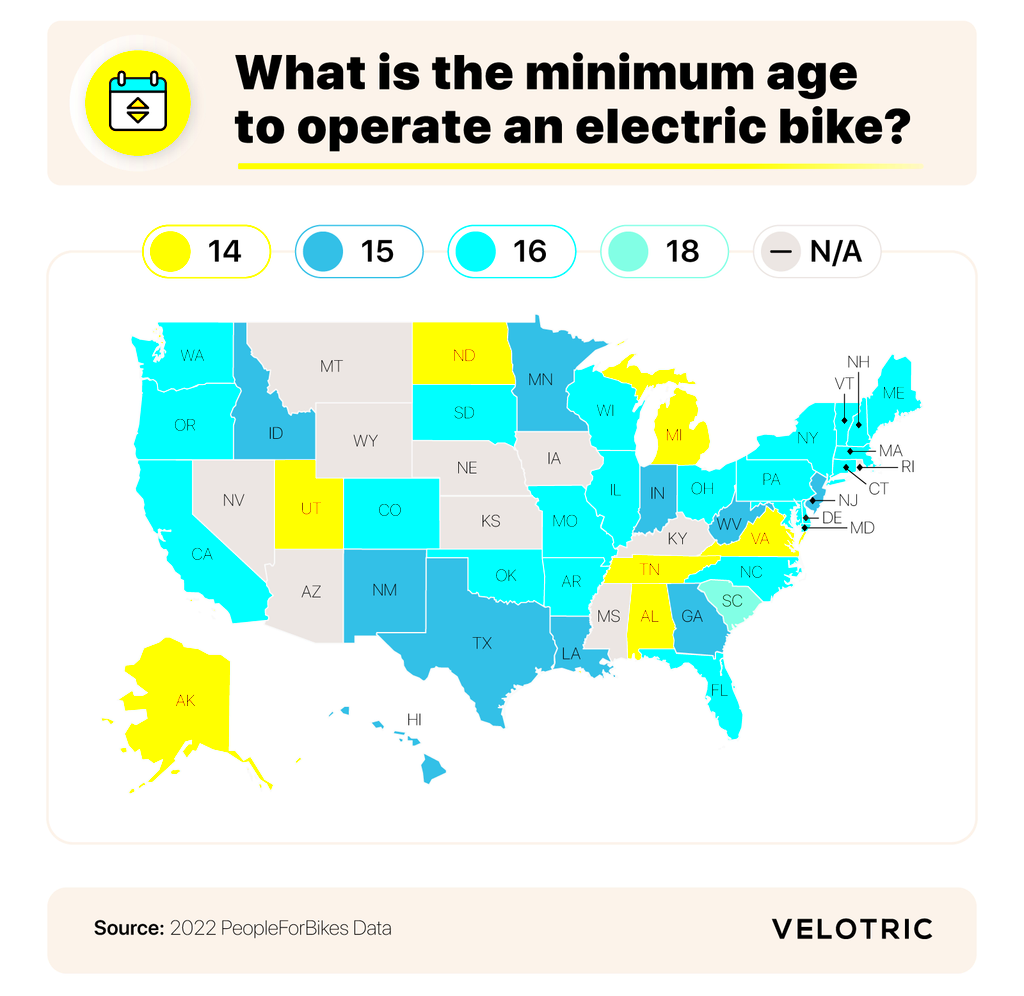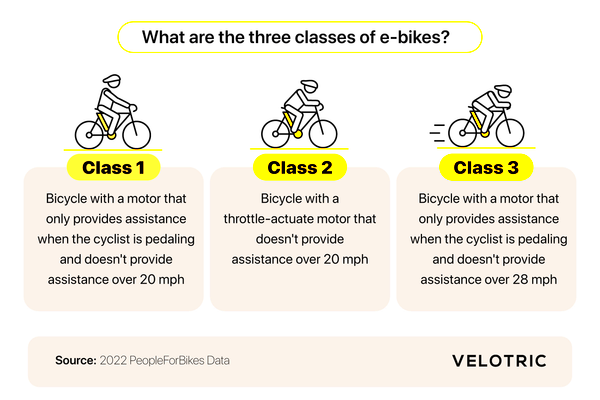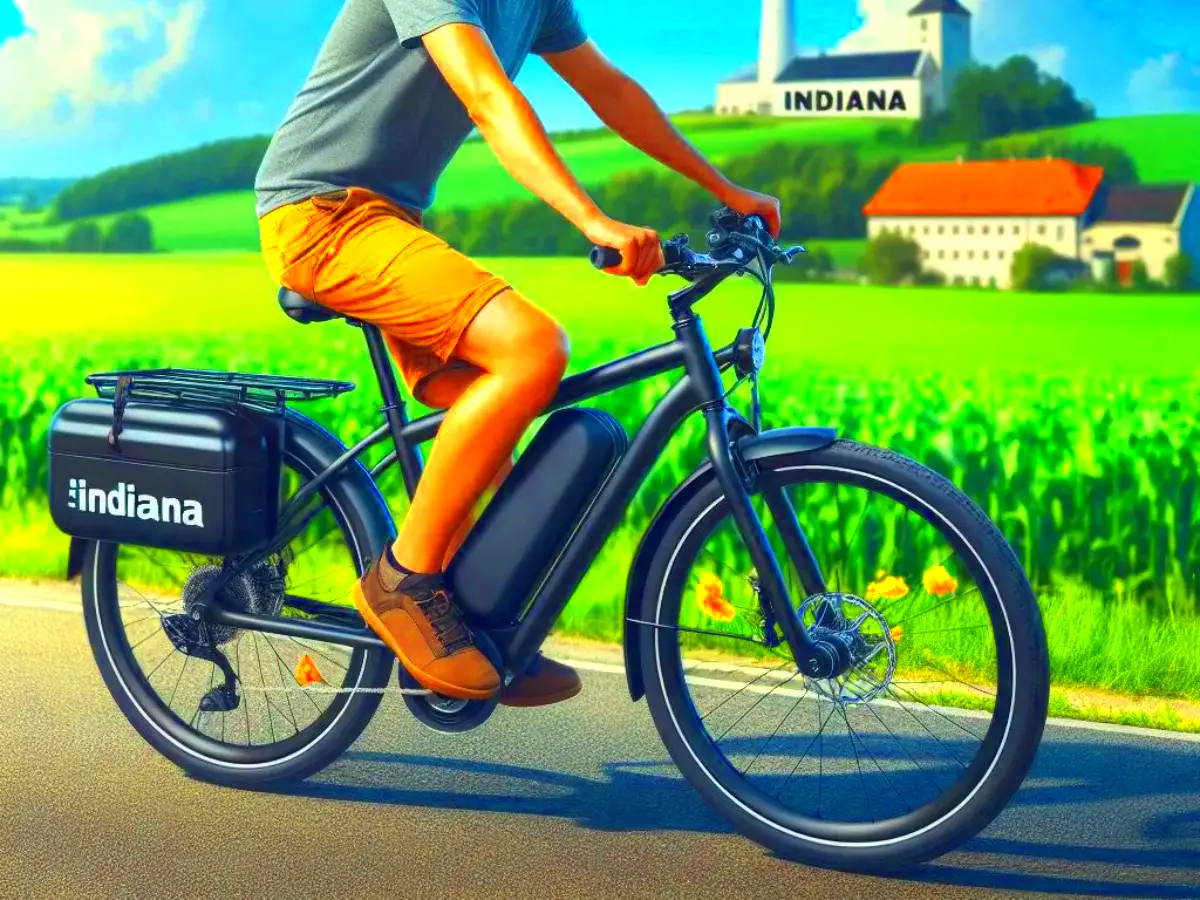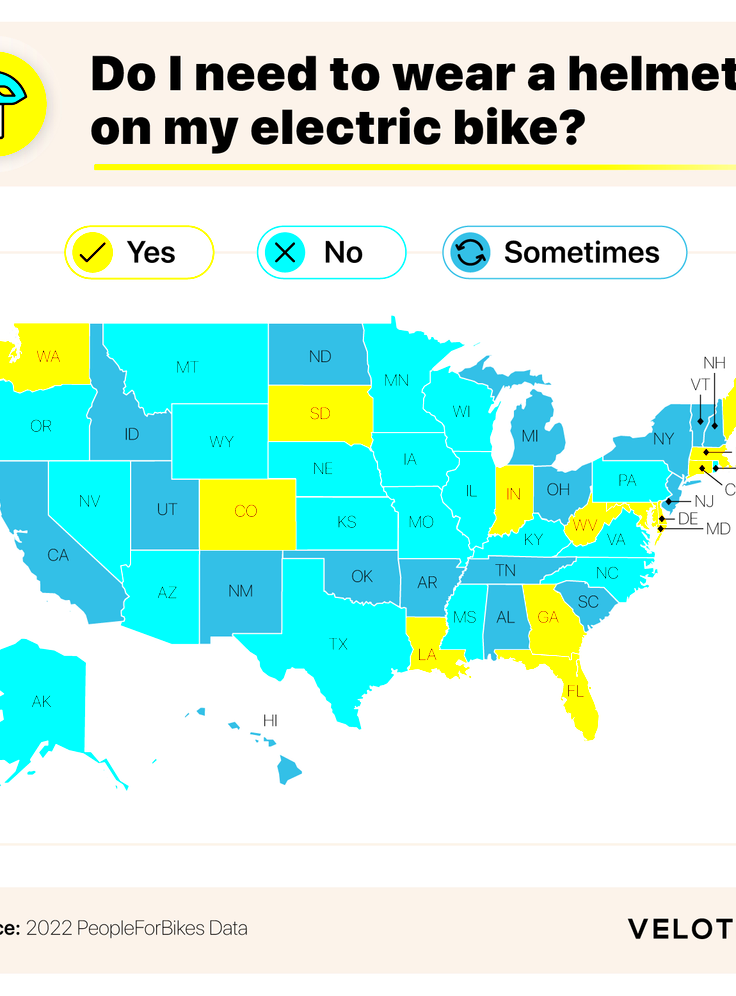Indiana Electric Bike Laws and What You Should Know
As an avid weekend explorer of the scenic trails and city streets on my electric bike I can attest to the thrill of the ride. However it’s essential to be aware of the laws surrounding electric bikes in Indiana to ensure a safe and compliant journey. Indiana has established guidelines regarding the usage and locations for electric bikes. These rules aim to safeguard both cyclists and pedestrians while encouraging the use of this cutting edge transportation method.
In Indiana the laws surrounding bikes focus on safety and categorization. It’s important for riders to understand that the state sorts electric bikes into groups, each with its own set of regulations. Whether you enjoy riding casually or use your electric bike for commuting knowing these rules will enable you to navigate paths and trails with greater assurance. Lets take a closer look at the details so you can optimize your rides while staying within the limits.
Types of Electric Bikes and Their Classification

Electric bicycles come in a range of designs, each designed to cater to different riding preferences and requirements. In Indiana the law classifies these bikes into three separate categories, each with its own set of regulations. Familiarizing yourself with these classifications can assist you in finding the bike that best fits your needs and knowing where you can ride it legally.
Here’s a quick rundown:
- Class 1: These electric bikes are equipped with a motor that provides assistance only when the rider is pedaling. The motor ceases to assist when the bike reaches 20 mph. This class is ideal for riders who enjoy a more traditional biking experience with a bit of extra help.
- Class 2: These bikes come with a motor that can assist the rider up to 20 mph, even when not pedaling. Class 2 bikes are often equipped with a throttle, allowing for easier acceleration. They’re perfect for those who want a bit more convenience while commuting.
- Class 3: Designed for those who seek higher speeds, Class 3 bikes provide motor assistance up to 28 mph. However, this assistance is only available while pedaling. These bikes are commonly used by more experienced riders or for longer commutes.
Different classes have rules about where you can ride, so it’s important to get to know the regulations that correspond to your bikes category. Being aware of these guidelines will help you enjoy your biking adventures without any legal issues along the way.
Required Equipment for Electric Bikes in Indiana

Scooting around on an e bike in Indiana isn’t just a joyride; it’s crucial to ensure your ride is up to snuff with the states rules. Indiana law lays down a few must haves for electric bikes to keep things safe and above board. Here’s the lowdown you should be aware of.
- Lights: Every electric bike must have a front white light and a rear red light when riding after dark. This is crucial for visibility and safety, especially in low-light conditions.
- Reflectors: Reflectors on the front, rear, and pedals of the bike are mandatory. They help enhance your visibility to others on the road.
- Helmet: While not always legally required for every rider, it’s highly recommended to wear a helmet. It’s a simple yet effective way to protect yourself in case of an accident.
- Bell or Horn: A bell or horn is required to alert pedestrians and other cyclists of your presence. It’s a small addition that can significantly improve safety on shared paths.
Making sure your bicycle is up to par with these gear specifications not only ensures that you adhere to Indiana regulations but also boosts your safety and those around you. Therefore before you set out on your ride take a moment to inspect your bike and confirm it has all the essential equipment. Enjoy your ride!
Where You Can Ride Electric Bikes

As I think back on my journeys through the lively streets of Bangalore and the peaceful trails of rural India I cant help but acknowledge the significance of understanding the areas where you can legally ride your e bike. The rules in Indiana provide direction in this regard but navigating them can be quite challenging, similar to maneuvering through a bustling marketplace. So lets delve into the details together.
In Indiana the regulations regarding where you can use your bike primarily hinge on its specific category. Here’s a breakdown of the key points.
- Class 1 Bikes: These bikes, which only provide motor assistance while pedaling, are generally allowed on bike paths and trails where traditional bicycles are permitted. They’re a great choice for leisurely rides through parks or along greenways.
- Class 2 Bikes: With the added convenience of a throttle, these bikes are often allowed on bike paths and streets. However, it’s essential to check local regulations as some municipalities may have specific restrictions.
- Class 3 Bikes: Given their higher speed, Class 3 bikes may face more restrictions. They are usually permitted on streets but may be prohibited from bike paths and multi-use trails. Always look for local ordinances to confirm where you can use them.
Basically electric bikes give you the freedom to roam but it’s important to be mindful of where you can ride them. This way you can have a safer and more enjoyable time. Whether you’re cruising through picturesque trails or navigating bustling city streets knowing the rules will enhance every ride you take.
Age and Licensing Requirements
When I began my journey with electric bikes I couldn’t help but feel a blend of thrill and apprehension. It’s essential to ride responsibly by being aware of the age and licensing criteria outlined by Indiana laws. These rules are put in place to guarantee that riders possess the skills and maturity needed to navigate electric bikes, safely.
Here’s what you need to know:
- Minimum Age: Indiana law generally requires riders of electric bikes to be at least 15 years old. For younger riders, some restrictions apply, especially when it comes to the more powerful Class 3 bikes.
- Licensing: Unlike motor vehicles, electric bikes do not require a specific license to operate. However, riders should be aware of local regulations, as some areas might impose additional requirements or restrictions.
- Training and Safety: Although not legally required, taking a safety course can be incredibly beneficial. It’s like having a trusted guide as you explore new trails, ensuring you’re well-prepared for any challenges you might encounter.
Being aware of the age and licensing regulations is crucial for a seamless and enjoyable biking experience. It’s all about being responsible while riding and maximizing the thrills of your electric bike journeys!
Safety Guidelines for Riding Electric Bikes
There’s a feeling of excitement and liberation that comes with riding an e bike. However prioritizing safety is crucial during every journey. After numerous rides across different landscapes I’ve gathered some tips that I’m excited to share to assist you in riding securely and with assurance.
Here are some essential safety guidelines:
- Wear a Helmet: Always wear a helmet. It’s your best friend when it comes to protecting your head in case of a fall. Think of it as your trusty companion on every ride.
- Follow Traffic Rules: Adhering to traffic signals and signs is crucial. Treat your electric bike as you would any other vehicle on the road. Signal your turns and check for blind spots to avoid accidents.
- Stay Visible: Equip your bike with front and rear lights, and wear reflective clothing if riding in low-light conditions. This ensures that other road users can see you clearly.
- Maintain Your Bike: Regular maintenance is key. Check the brakes, tires, and battery before each ride. A well-maintained bike is not just a smoother ride but a safer one too.
- Be Mindful of Speed: Respect speed limits, especially on bike paths and trails. While it’s tempting to zoom along, maintaining a moderate speed helps you react quickly to any obstacles.
By sticking to these tips you can make sure that every time you head out on the road or trail is both safe and enjoyable. Pedal with assurance and let your electric bike journeys be just as exciting as they are secure.
Penalties for Violating Electric Bike Laws
After watching some friends deal with the challenges of local rules, I’ve come to realize the importance of adhering to electric bike laws in Indiana. The state has established penalties for those who deviate from these regulations and being aware of these consequences can help you avoid unforeseen troubles. Just picture receiving a fine for not knowing about a law – that’s why staying up to date is essential.
Lets take a moment to examine the potential consequences of not adhering to the guidelines.
- Fines: Violating electric bike regulations, such as riding in prohibited areas or not having the required equipment, can result in fines. These fines can range from modest amounts to more significant penalties depending on the violation.
- Impoundment: In some cases, if an electric bike is being used in a manner that clearly contravenes local laws, it could be impounded by authorities. This can be a major inconvenience and can also lead to additional fees for retrieval.
- Legal Action: Repeated violations or serious breaches, such as operating an electric bike without proper registration or insurance (where applicable), can lead to legal action. This might involve court appearances and further financial consequences.
Imagine wandering through a lively marketplace where understanding the guidelines keeps you out of trouble. By being mindful of these possible consequences you can ensure that your journeys are pleasant and trouble free. So make it a point to check the updated rules from time to time to avoid any unexpected surprises.
How to Stay Updated on Changing Regulations
When I began riding my e bike I struggled to keep pace with the constantly changing laws. It was similar to trying to stay updated on cricket scores both require some effort to stay in the loop but it’s definitely worthwhile. Staying informed helps you avoid being taken by surprise. By unexpected shifts in the legal landscape.
Here are some effective strategies to keep abreast of the newest rules and regulations.
- Follow Local News: Local newspapers and news websites often report changes in regulations. Subscribing to these sources can provide timely updates that directly affect your riding experience.
- Join Online Forums and Groups: Online communities and forums dedicated to electric bike enthusiasts are great places to exchange information and learn about new laws. They often discuss changes and share tips on staying compliant.
- Check Government Websites: The Indiana Department of Transportation or local government websites regularly update their information on bike laws. Bookmarking these pages and checking them periodically can keep you informed.
- Visit Local Bike Shops: Sometimes, local bike shops have the latest news about regulations. They often deal with issues related to compliance and can be a good resource for up-to-date information.
Keeping yourself in the loop is like carrying a reliable guide for your travels. It assists you in finding your way through the twists and turns of rules and makes sure that your journeys are always on the side of the law. Stay informed and you’ll cruise along with ease and assurance regardless of how the regulations evolve.
FAQ about Indiana Electric Bike Laws
Having a source to turn to for rider questions can be really useful. When it comes to electric bike laws things can get tricky. That’s why having a FAQ section can help clarify things. Here’s a summary of some commonly asked questions that could shed light on the rules and regulations.
- Do I need a special license to ride an electric bike in Indiana? No, you don’t need a special license. However, you should be aware of the local regulations concerning electric bikes to ensure compliance.
- Can I ride my electric bike on sidewalks? The rules about riding on sidewalks can vary by municipality. Generally, electric bikes are allowed on sidewalks unless local ordinances prohibit it. Always check local regulations before riding on sidewalks.
- What should I do if I get a fine for violating electric bike laws? If you receive a fine, it’s important to address it promptly. Pay the fine as instructed or seek legal advice if you believe there was a mistake.
- Are electric bike laws the same throughout Indiana? While there are state laws, local regulations can differ. It’s a good idea to check the specific rules in the area where you plan to ride.
- How can I find out about changes in electric bike laws? You can stay updated by following local news, joining online forums, checking government websites, and visiting local bike shops.
Having these responses readily available can enhance your electric bike journey making it more enjoyable and hassle free. Its all about being knowledgeable and ready to go so you can concentrate on relishing your rides without stressing over any legal concerns.
Wrapping Up: Key Takeaways on Indiana Electric Bike Laws
After exploring the complexities of Indiana’s electric bike regulations it becomes evident that being well informed and following the rules can greatly enhance your biking experience. Based on my own rides in Indiana I’ve witnessed how familiarizing yourself with the regulations can save you from hassles and make your journey smoother. Here are the main points that I found particularly useful.
- Understand the Classification: Electric bikes in Indiana are classified into three main categories—Class 1, Class 2, and Class 3. Each class has specific regulations regarding where you can ride and what equipment is required. Knowing your bike’s class helps in choosing the right trails and streets.
- Follow Equipment Requirements: Make sure your electric bike is equipped with the necessary gear, such as lights and reflectors. These safety features not only keep you compliant with the law but also enhance your visibility and safety on the road.
- Respect Age and Licensing Rules: Ensure that you meet the minimum age requirement and understand that no special licensing is needed. However, adhering to these rules helps in fostering a safer riding environment.
- Know Where You Can Ride: Each class of electric bike has specific areas where it’s allowed. Whether it’s bike paths, streets, or multi-use trails, knowing where you can ride helps in avoiding fines and enjoying your rides to the fullest.
- Stay Updated: Regulations can change, so it’s important to regularly check local news, government websites, and community forums to stay informed about any new laws or changes to existing ones.
To sum up dealing with Indiana’s electric bike laws doesn’t have to be a daunting task. By grasping the different classifications adhering to equipment standards respecting age and licensing regulations being aware of riding locations and keeping up with rule changes you can enhance both your safety and enjoyment while riding. So get ready for an adventure stay safe on the road and let the open highways or peaceful trails serve as your playground!


